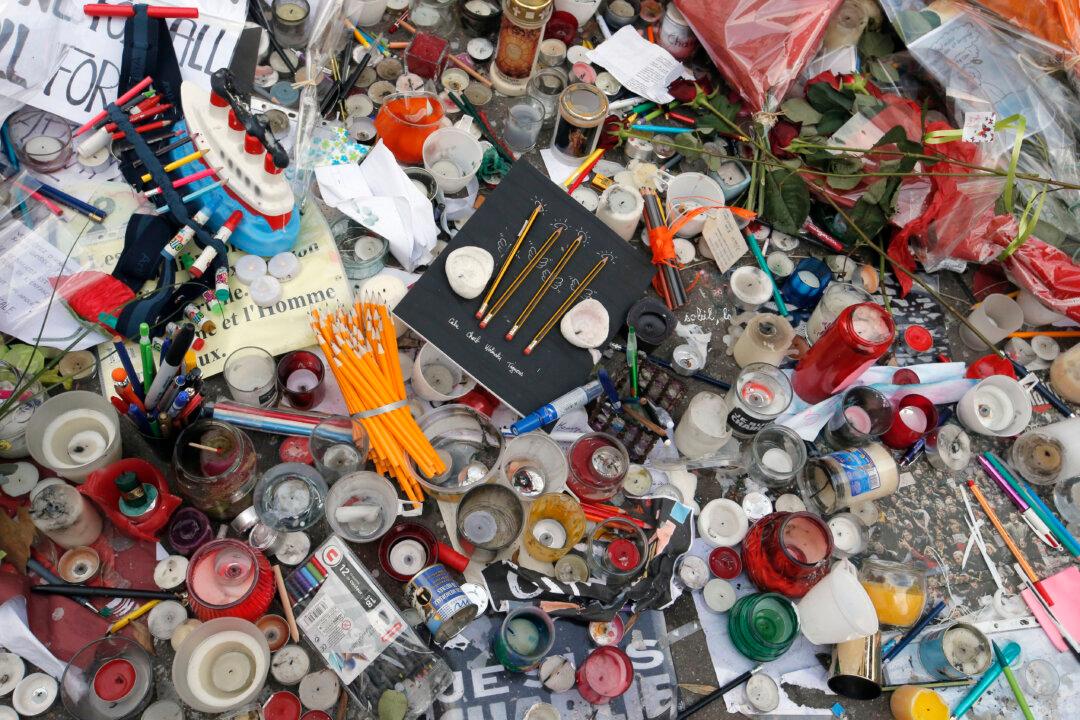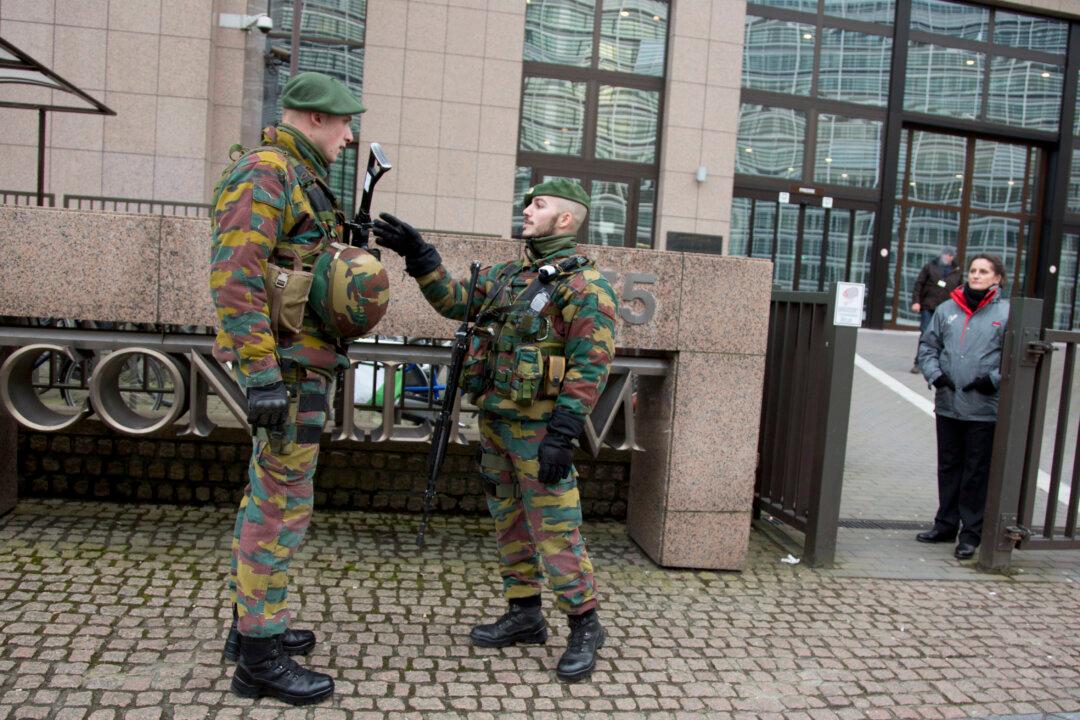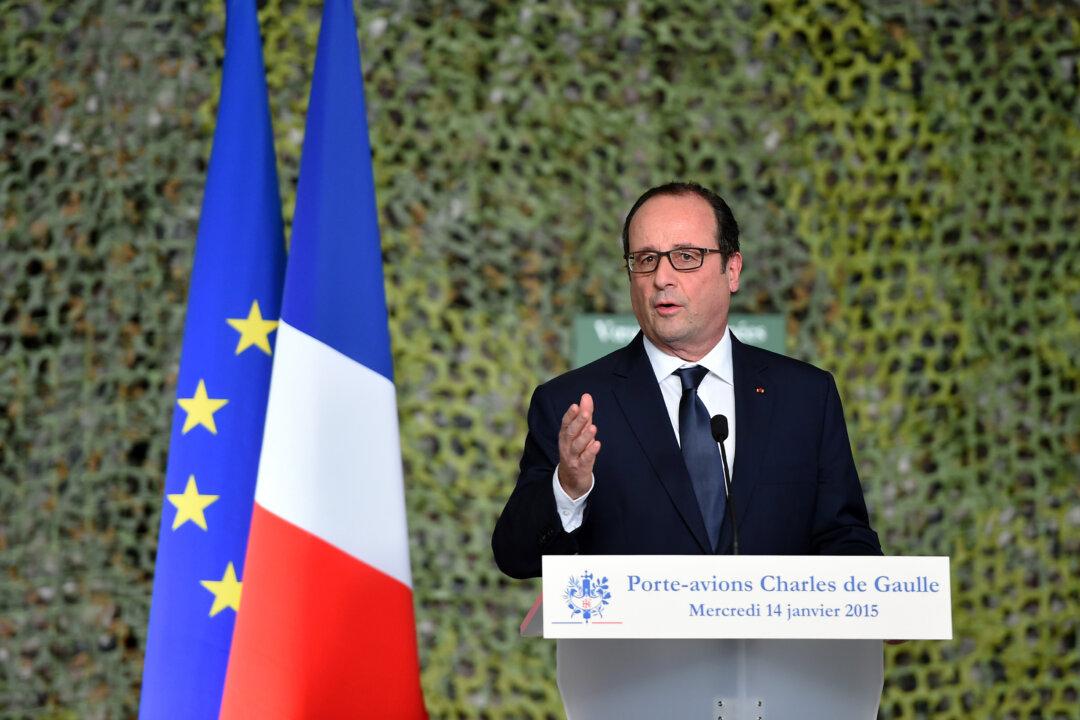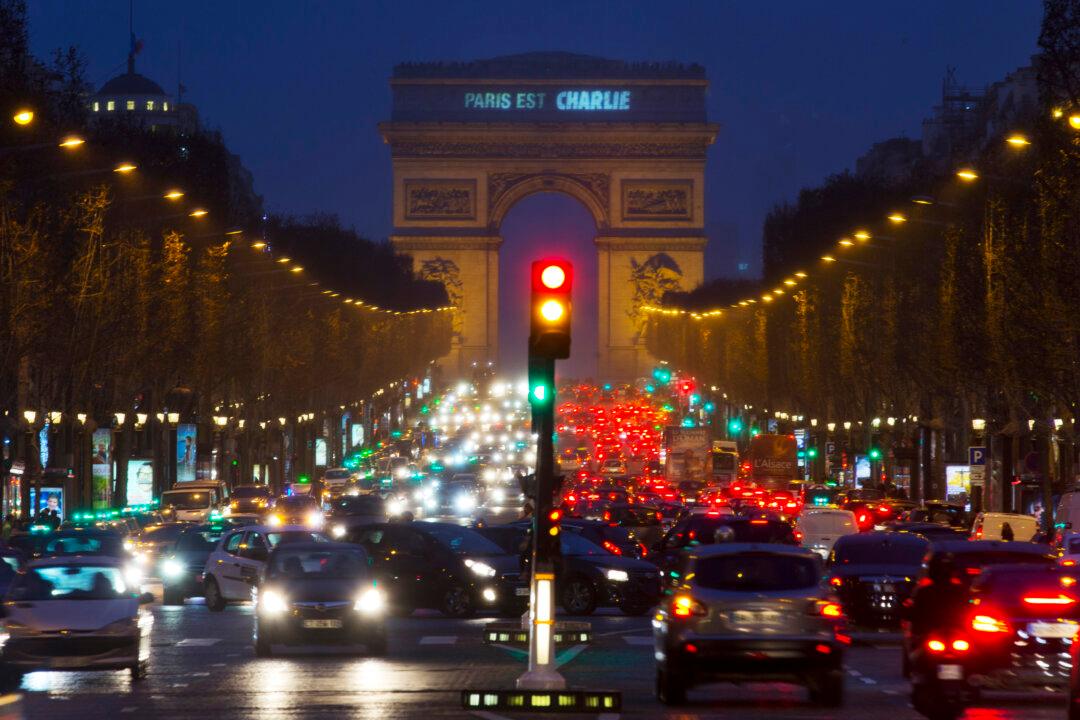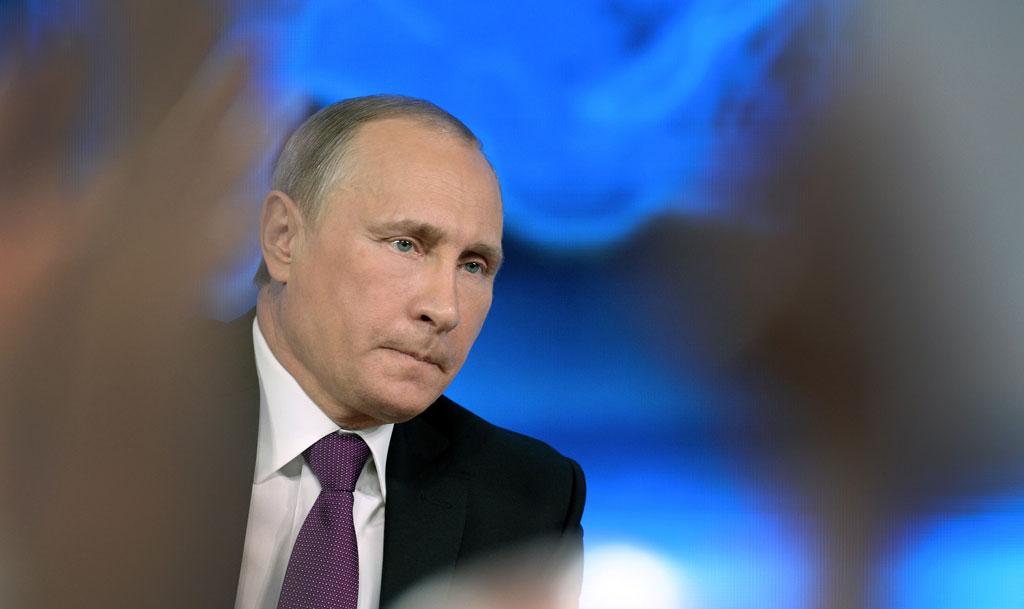PARIS—France announced sweeping new measures to counter homegrown terrorism Wednesday, including giving security forces better weapons and protection, going on an intelligence agent hiring spree and creating a better database of anyone suspected of extremist links.
The measures detailed by Prime Minister Manuel Valls came as four men were handed preliminary charges of providing logistical support to one of the Paris terror attackers — the first charges issued for three days of mayhem that left 20 people dead, including three gunmen.
The new security measures include increased intelligence-gathering on jihadis and other radicals, in part by making it easier to tap phones. Valls said Internet providers and social networks “have a legal responsibility under French law” to comply with the new measures.
In all, France will spend 425 million euros ($490 million) over the next three years for all the counter-terror efforts, he said.
Some 2,600 counter-terrorism officers will be hired, 1,100 of them specifically for intelligence services. Anti-terror surveillance is needed for 3,000 people with ties to France — some at home, others abroad, the prime minister said.
Also Wednesday, President Francois Hollande’s office announced that the government now plans to cut 7,500 fewer jobs from the military to better fight terrorism.
Authorities say more than 1,200 French citizens and residents are now linked to foreign jihad — the defense minister said Wednesday about 10 of those who have gone to Syria or Iraq to fight with Islamic extremists are former French soldiers. Minister Jean-Yves Le Drian insisted the phenomenon remains an “extreme rarity.”
Since three police were among those killed by the Paris terrorists, the prime minister said improving officers’ weapons and protective gear was among the top priorities.
France has repeatedly strengthened its counterterrorism laws over the years, including a measure passed in November that focused on preventing French extremists from joining fighters abroad. Another measure — expected to be activated in the coming weeks — would allow authorities to ask Internet service providers to block sites that glorify terrorism.
Isabelle Falque-Pierrotin, head of France’s national data protection agency CNIL, told reporters Wednesday her agency would insist that any additional snooping privileges for France’s intelligence services should only be allowed if they are matched by greater protections for personal data.
A leading civil liberties group, La Quadrature du Net, said Valls’ proposals “presage a new retreat of civil liberties on the Internet.” It accused the government of “using the attacks to put in place some of the most repressive legislation” and warned that huge marches against terrorism in France mustn’t provide “cover for yet another security crackdown.”
Outlining a web of phone calls, shared keys and prison friendships, Paris Prosecutor Francois Molins said the four suspects given preliminary charges overnight will remain behind bars while the investigation continues. All are in their 20s, and all were arrested in the Paris region.
He identified them only as Willy P., Christophe R., Tonino G. and Mickael A. Under French law, if convicted on the preliminary charges of criminal association with a terrorist organization, they could face up to 20 years in prison.
Three of the men are suspected of buying weapons for Amedy Coulibaly. Coulibaly shot a policewoman to death Jan. 8 on the outskirts of Paris and then a day later killed four hostages at a kosher supermarket before being killed in a police raid.
Three of the four suspects charged had criminal records; at least one met Coulibaly in prison, Molins said. Coulibaly himself had met Cherif Kouachi, one of the two brothers behind the attack on the Charlie Hebdo newspaper, in prison.
Among the measures announced by Valls was hiring new officers to counter prison radicalization and segregating those prisoners who are already radicalized.
The DNA of Mickael A. was found on a revolver in Coulibaly’s apartment and on a glove the gunman wore in the supermarket, Molins said. Mickael A. also had 18 phone contacts with Coulibaly on Jan. 6.
Molins said three of the men are believed to have procured weapons and tactical material for Coulibaly.
The lawyer for one of those charged said his client was unaware of any terrorist plot and feared Coulibaly since being roughed up by him six years ago.
“Coulibaly is known in this neighborhood as an outlaw, a big shot. People were afraid of him,” said the lawyer, Fabrice Delinde. He would not identify his client for security reasons.
The client “acted as an intermediary so that Coulibaly would not be buying weapons directly. He was forced. If he refused, he would have been beaten,” the lawyer told The Associated Press.
Also Wednesday, authorities acknowledged that Coulibaly and his common-law wife Hayat Boumeddiene were stopped by police in a routine control Dec. 30, the week before the attacks, then let go. The incident is now under investigation. Boumeddiene fled to Syria as Coulibaly carried out his attacks in Paris.
The Paris prosecutor acknowledged that investigators have made less progress in their probe of the Kouachi brothers than the probe into Coulibaly.
French authorities are working with other countries to search for other possible accomplices, Molins said. They are especially trying to find out who was responsible for the posthumous video of Coulibaly, edited and released days after he and brothers Said and Cherif Kouachi died in standoffs with police.
In the video, Coulibaly pledges allegiance to the Islamic State group and details how the Paris attacks were coordinated.
In a separate terrorism investigation in neighboring Belgium, authorities said a fifth suspect linked to an alleged terror cell plotting a major attack on Belgian police was put behind bars. Belgium prosecutors also said those killed in an anti-terror raid in eastern Verviers last week were two Belgian nationals in their twenties.
With terror alert levels raised around Europe, European Union officials are working on better ways to combat terrorism continentwide. European lawmakers met Wednesday to assess plans for an EU-wide deal on exchanging sensitive air passenger information, but were resisting pressure to push the deal through quickly.
From The Associated Press. Lori Hinnant, Jamey Keaten and Greg Keller in Paris and Lorne Cook in Brussels contributed.
